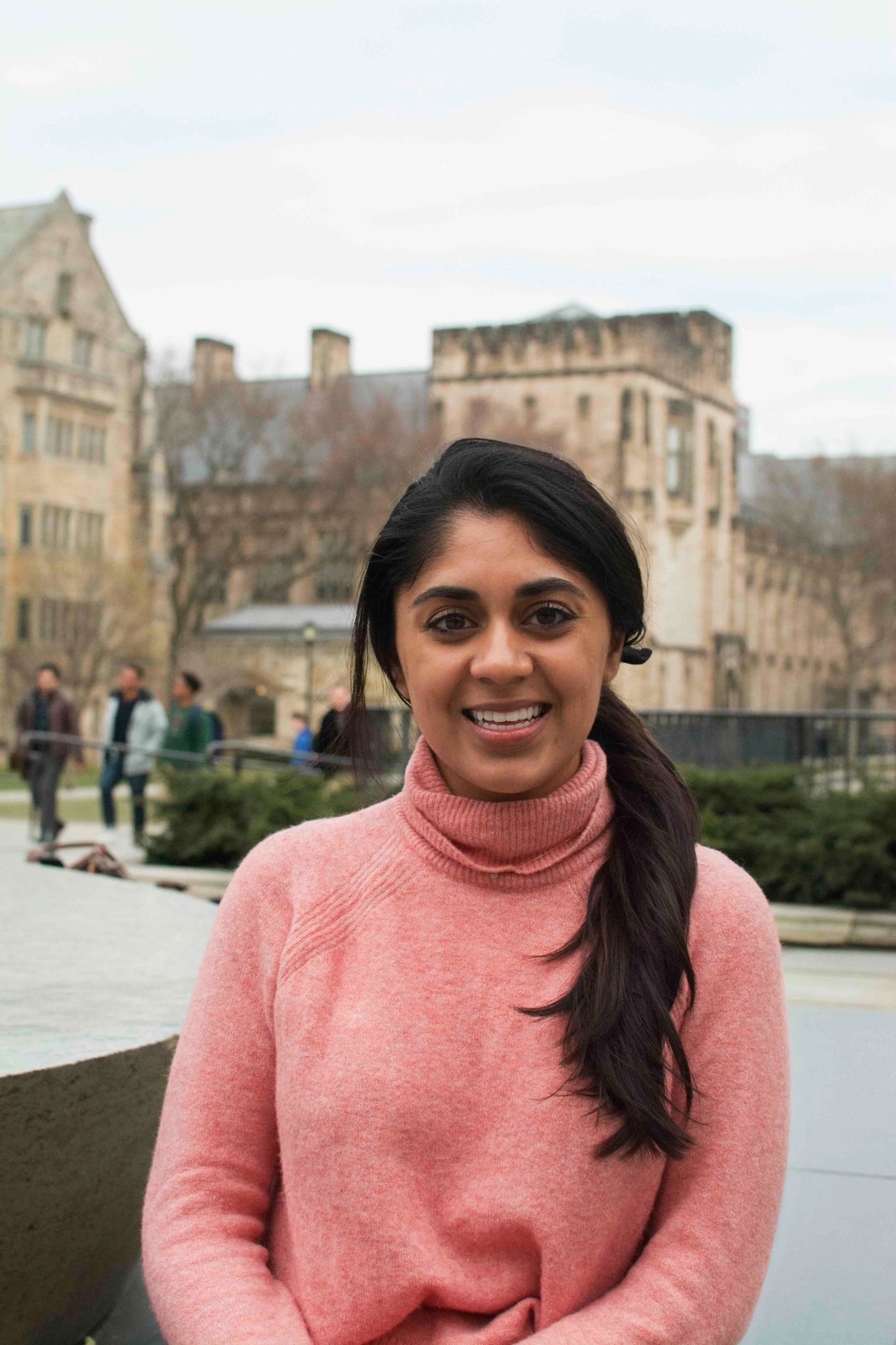
Sal Rao ’20 will be the next Yale College Council president, after winning last week’s election with 961 votes, or 38.22 percent of the total.
Heidi Dong ’20, Rao’s running-mate, won the election for YCC vice president, claiming 1,386 votes, or 55.07 percent of the total. Rao will become the first female YCC president in nine years, and she and Dong will be the first female president–vice president team in a decade. Caleigh Propes ’20, who ran uncontested, was elected events director.
“I am incredibly humbled and grateful,” Rao told the News. “And I am beyond excited to get to work with Heidi and the rest of the new council to make this campus a better place.”
Dong expressed similar excitement at the results of the election, telling the News that she is “incredibly honored … and excited to work with Sal and the newly elected representatives and the Yale community” and that she looks forward to advocating for sustainable change. Rao and Dong ran on a platform of restructuring the YCC through increasing student representation on the council of representatives and reforming Yale’s mental health services and sexual climate.
About 43 percent of the total undergraduate student population — or 2,517 students — voted in this year’s elections, almost double last year’s voter turnout of 22.3 percent.
“We’re incredibly excited to see how engaged people across campus were in this election,” said Nick Girard ’19, the outgoing YCC vice president. “Huge improvement in terms of how many voters were engaged and actually coming out to vote, compared to last year’s campaign. I think a lot of that has to do with the candidates running such great campaigns, trying to really engage campus. I think we did a lot of work on our end to try to push the information about how to vote out, so we’re really proud.”
Matt Guido ’19, outgoing YCC president, also attributed the increased voter turnout to the higher number of candidates running for officer positions — nine, compared to four last year — and the diversity of the candidate pool.
Presidential candidate Shunhe Wang ’20 received 530 votes, or 21.06 percent of the total, with Chris Moeckel ’20 following closely behind with with 447 votes, or 17.76 percent of the total. Aadit Vyas ’20 received 403 votes, or 16.01 percent, and Azaria King ’20 received 112 votes, 4.45 percent of the total. Just under 3 percent of voters abstained.
Vyas congratulated the next administration and thanked the Yale community for its support, adding that he is looking forward to “getting back to work on trying to make Yale the best it can be.”
Moeckel, an outsider candidate with no YCC experience who promised to shake up the establishment, emphasized the importance of holding the next administration accountable.
“Yale students deserve a student government that stands up to the administration,” Moeckel said. “I hope that Sal rises to the challenge and refuses to compromise on the student income contribution and mental health reform. I plan to hold her accountable to her campaign promises, and I’m hopeful that every Yale student does as well.”
Rao won the election despite answering “no” to the question “Is Yale institutionally racist?” during the “lightning round” of last week’s YCC debate, in which candidates were required to answer “yes” or “no” to a series of questions. Three of the other candidates responded “yes” to the question, and Dwight Hall, one of several Yale organizations to endorse Rao, criticized her response in a statement on Saturday.
The transition from the current YCC to the next one will begin over the next few weeks and last until the end of final exam period, which is when the newly elected representatives’ terms officially begin.
“Over the next few weeks, Matt and I will be meeting with Sal and Heidi to discuss our positions, ongoing projects, important things we want to community and officially handing things over, as well as to help guide them through the process of getting executive board applications out,” Girard told the News. “We’re excited to work in the weeks ahead with the two of them to make sure that next year’s YCC has all the resources and everything that it needs to succeed.”
The race for Sophomore Class Council president also proved competitive, with four candidates in the running. Heather Foster ’21, who received 219 votes, or 38.42 percent of the total, won the election, defeating Samuel Han ’21, Megan Sardis ’21 and Anna Gumberg ’21.
The Junior Class Council president will be Daniel Robinson ’20, who ran uncontested. Most of the elections for the YCC’s Council of Representatives were also uncontested — but in five of the residential colleges, only one candidate ran for the representative position. Another round of elections will take place in the fall to fill the five empty seats in the Council of Representatives.
Aakshi Chaba | aakshi.chaba@yale.edu







